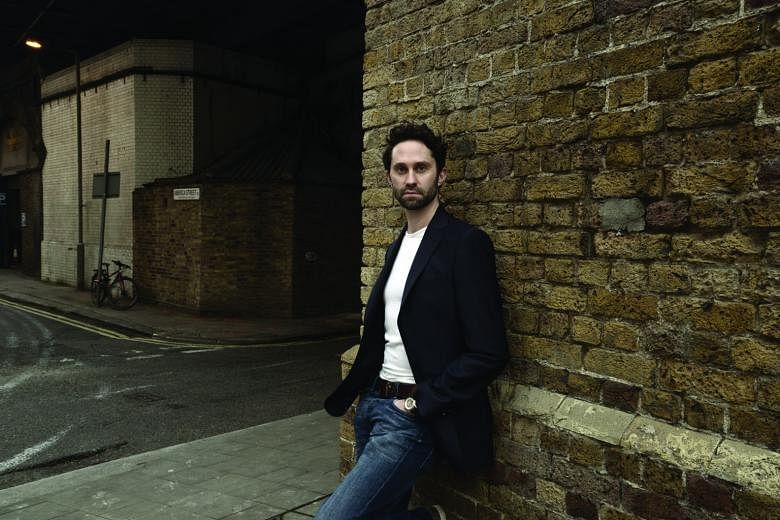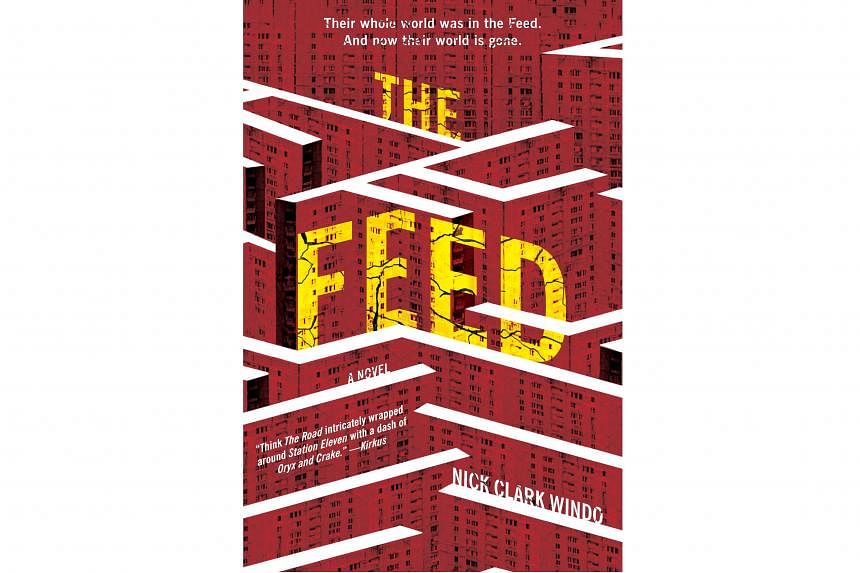FICTION
THE FEED
By Nick Clark Windo
Headline Publishing Group/ Paperback/352 pages/$29.95/ Books Kinokuniya
3.5 stars
British author Nick Clark Windo taps a common everyday addiction for inspiration for his debut novel - the millions around the world who are almost perpetually glued to their phones and are stricken when they have to disconnect.
Call it a #firstworldproblem if you wish, but in Windo's world, the compulsive urge to check e-mail and social media constantly and the obsession over "likes" and "shares" have taken over the world via a technology known as the Feed.
He imagines a not-so-distant future where a planet that is overreliant on technology is left crippled when the entire system falls apart, in this high-concept debut that combines the science-fiction and dystopian genres.
It feels all the more timely, what with the raging controversy over how political consultancy Cambridge Analytica had, without Facebook's authorisation, mined user data to influence the 2016 United States presidential election.
Rights have been acquired for The Feed - by Amazon and Virgin Media - to produce a 10-part series that is set in London. It will be adapted for the small screen by the writer of the hit zombie series The Walking Dead (2010 to present).
This is perhaps a missed opportunity for Netflix, as the novel reads like an episode in its Black Mirror (2011 to present) science-fiction anthology that examines the ramifications of new technologies.
At the core of the book is newly-married couple Tom and Kate, who are expecting their first child when the Feed collapses. The leader of the free world has also been assassinated, plunging the planet into chaos.
With the Feed, everyone is constantly plugged into an endless stream of information.
All memories, experiences and interactions are stored in a cloud, with data computerised to such an extent that advertisements are user-targeted, books are nearly extinct and proper grammar has become unnecessary.
The technology is created and managed by an ever-powerful mega-corporation that is also experimenting with a prototype to genetically engineer the Feed such that it becomes part of one's DNA.
The system crash leaves everyone crippled and having to fend for themselves without any idea how to do the most basic things. Many are helpless from being forced to go cold turkey.
Thus begins the survival story - but with another lurking menace. A mysterious being has been hacking into the brains of human beings via the Feed and possessing their bodies as they sleep.
In the six years since the collapse, Tom and Kate have become part of a small community. But they are prompted to leave after two members get "taken" in quick succession, and when their daughter Bea, six, gets kidnapped.
Windo's darkly atmospheric novel is gripping yet somewhat unpolished in its pacing - the novel really picks up speed only in the second half. But he succeeds in getting under your skin, in cleverly casting an invisible yet omnipotent villain that seems even more dangerous than brain-eating zombies. If you like this, read: Station Eleven by Emily St John Mandel (Pan Macmillan, 2015, $19.94, Books Kinokuniya). An elegiac dystopian novel about love, loss and survival, in which a wandering band of actors performs Shakespeare to survivors 20 years after a lethal virus wipes out most of the world.



